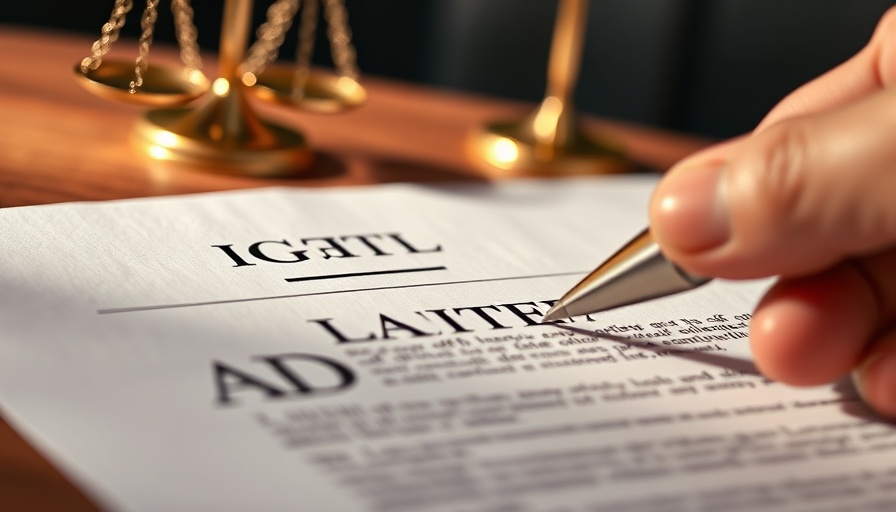
Breaking Ground in Sustainability: Washington and Maryland's EPR Laws
In an inspiring step towards environmental responsibility, Washington and Maryland have enacted Extended Producer Responsibility (EPR) laws focused on packaging. These progressive measures signal a pivotal shift in sustainable packaging practices across the nation, indicating that circular economy leadership is gaining momentum.
On May 17, Washington Governor Bob Ferguson signed Senate Bill 5284, while Maryland's Governor enacted SB 901 just days earlier on May 13. These laws not only shift the financial burden of recycling from local governments to producers but also serve as a guiding framework to incentivize companies to create more sustainable products. With these additions, the national EPR movement now includes eight states, paving the way for a potential national EPR framework.
What's in the New Laws?
The essence of the EPR laws in Washington and Maryland lies in transferring the operational and financial responsibility for recycling directly onto packaging producers. This move drastically changes the landscape of how packaging waste is handled, aligning economic incentives with environmental needs.
Washington's Senate Bill 5284 is particularly comprehensive, requiring producers of packaging and paper products to:
- Join a Producer Responsibility Organization (PRO) by July 1, 2027, that will manage the EPR program.
- Ensure that curbside recycling services reach 90% of state residents by 2031, including multifamily residences.
- Provide drop-off points for recycling for those without curbside options.
- Cover at least 90% of the total costs associated with recycling, including education campaigns to inform the public.
- Adhere to clear labeling standards for packaging by 2032.
- Phase out harmful materials from the recycling stream by 2029.
This emphasis on equity ensures that all communities, especially those traditionally underserved, have access to recycling resources.
The Impact on Residents
As these laws take effect, they will not only enhance recycling services but also foster greater environmental consciousness among residents. Homeowners aged 25 to 55, who are often keenly aware of sustainable living practices, will likely welcome these changes. With effective recycling and waste management systems in place, they can actively participate in reducing their households' carbon footprints.
The expectation that producers will invest in sustainable packaging also implies more eco-friendly products in the market. Consumers can expect to see innovations that cater to their desire for biodegradable and recyclable packaging, easing the burden of disposal of household waste.
Setting Standards for Future Legislation
The success of these EPR laws in Washington and Maryland may serve as a blueprint for other states considering similar frameworks. The implementation process will not only demonstrate how well producers can adapt to these regulations but also provide data and insights that can guide national policy discussions. As these states begin to measure the economic and environmental impacts, the potential for a national EPR system grows.
Community Commitment to Sustainability
While these legislative changes unfold, individuals can take personal responsibility by utilizing local recycling centers, participating in community clean-up events, and educating others about sustainable living practices. Finding a recycling center in your area, or a recycling guide can empower more residents to get involved, ensuring that the expected recycling infrastructure is effective.
Additionally, embracing practices such as composting, upcycling, and other household hazardous waste disposal techniques will complement the overarching goals of these laws. Small actions can lead to significant changes, collectively influencing climate change solutions.
Conclusion: Embracing Change
As we stand on the brink of a new era in sustainable living, Washington and Maryland's EPR laws exemplify the importance of proactive legislation in addressing environmental challenges. By shifting the financial responsibility to producers and ensuring greater access to recycling, these states lead the charge in promoting a cleaner, greener future. Let's embrace these changes by committing to sustainable practices in our daily lives and supporting local initiatives aimed at reducing our impact on the planet.
Join in on the conversation about sustainable living and make a difference today!
 Add Row
Add Row  Add
Add 




 Add Row
Add Row  Add
Add 

Write A Comment